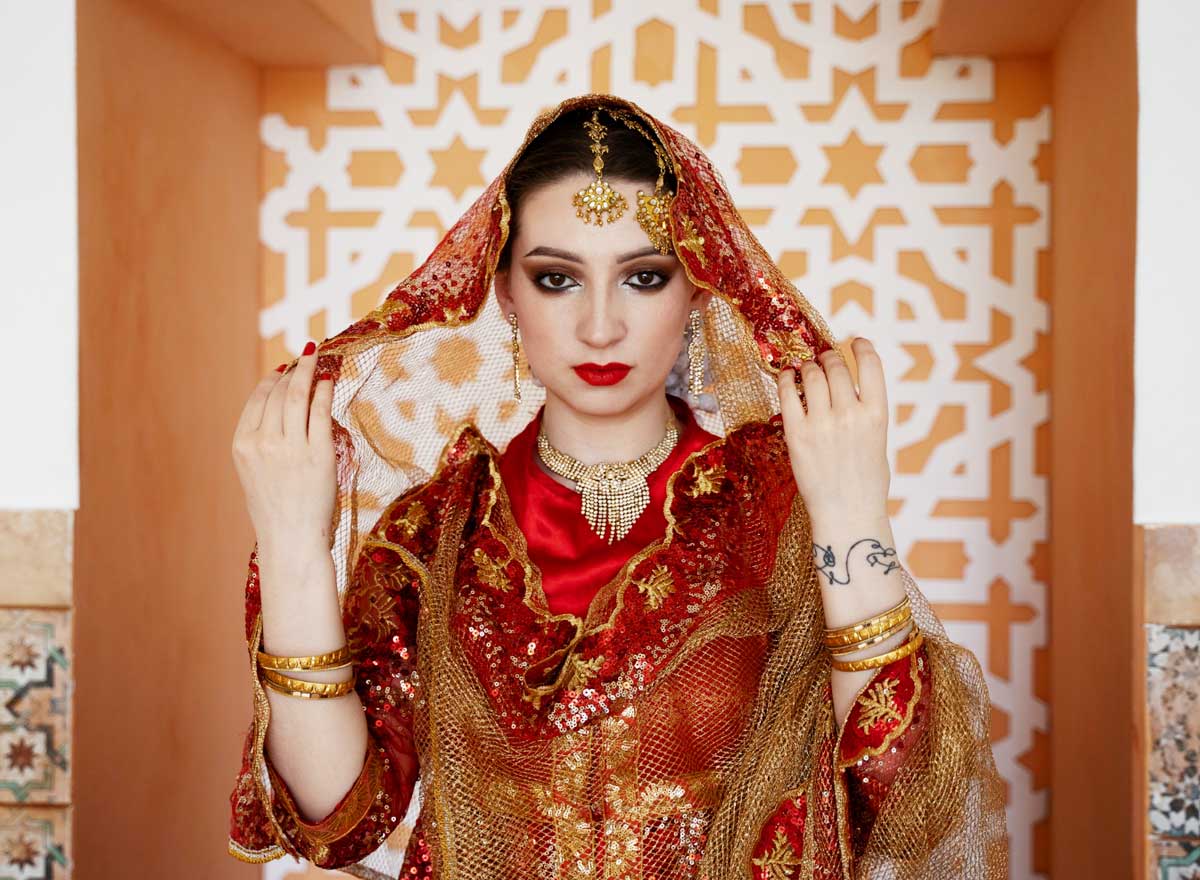How do Muslim weddings differ around the world?

"As the second-largest religion on the planet, with significant and diverse populations all over the globe, it's worth noting that there are countless ways Muslims celebrate and perform weddings," emphasizes Campbell. Khan concurs adding that "Muslim weddings differ based on regionality, this goes back to cultural and ethnic norms during a wedding. There may be some cultural and traditional nuances that take place, games or things that happen, whether it's South Asian, East Asian, North African, Arab, it all depends on the region. Some people take things from what their culture is, even if it doesn't have anything to do with Islam because it is just a way to celebrate the wedding and that's what makes it really beautiful that even though it is a Muslim wedding you can see it done so many different ways."
Specifically, Campbell shares that "one big difference is the way brides and grooms are presented to their spouse. In Arab weddings, it's usually a bride who is processed and presented to her groom during a zaffe. In South Asian weddings, it's normally a groom who is processed and presented to his bride during a baraat. Another marked difference is the number of celebrations. While an Arab wedding has one major reception-style celebration (the Walima), South Asian weddings traditionally have two: the Shaadi, which normally takes place the same day as the Nikah, and the Walima, which normally takes place the following day."
Ingen post fundet
Skriv en anmeldelse





